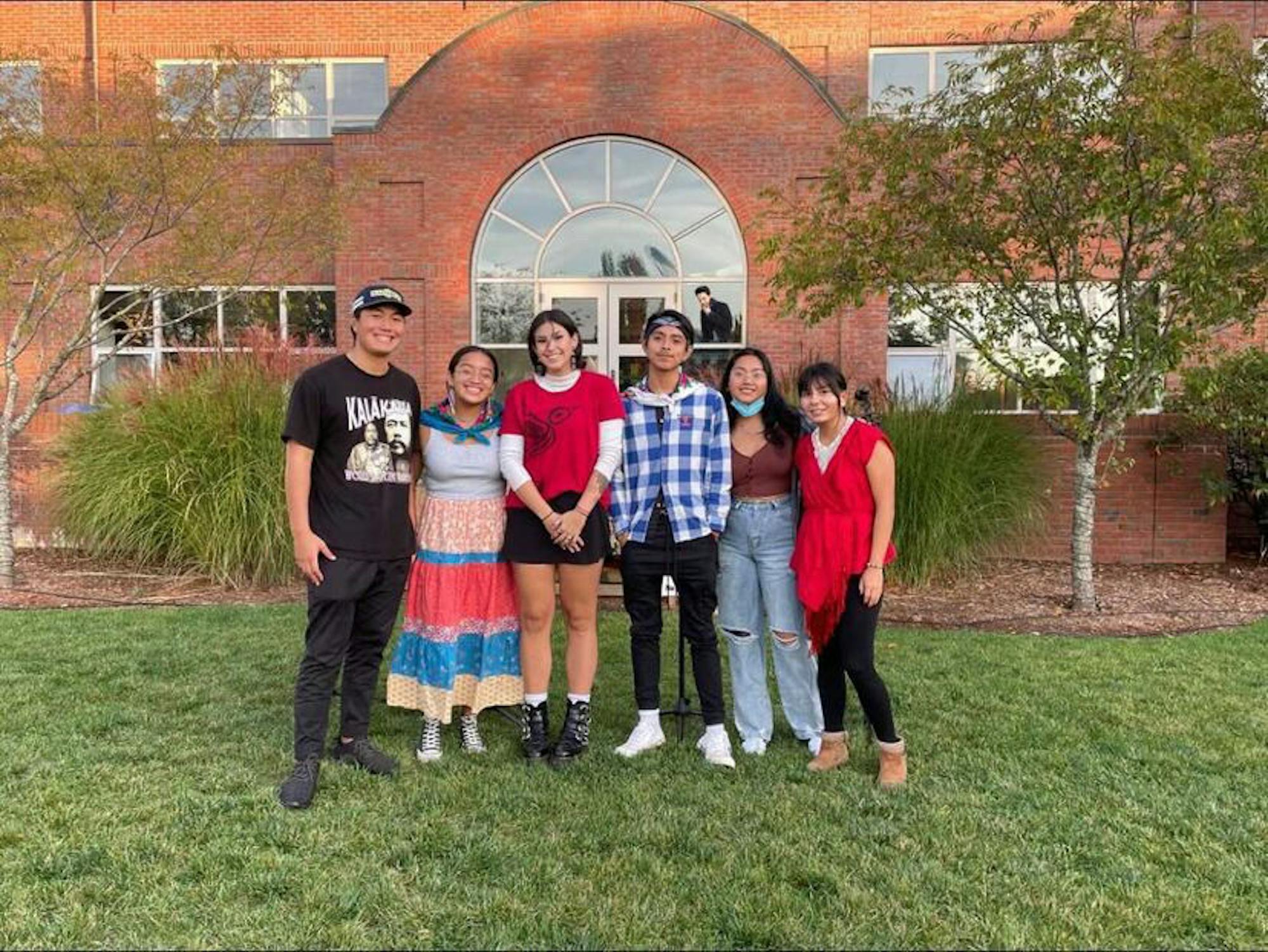Tufts University resides in the homeland of the Massachusett people and within the territories of the Nipmuc and Wôpanâak (Wampanoag) tribes. They were the original stewards of the land and the relationships between Indigenous peoples, and their traditional territories endure. The university would not exist if it was not for their care.
On Indigenous Peoples' Day, it is important to pause and reflect on the United States’ role in the colonization of the Americas. For centuries, European colonists arrived in the Americas, using violence and oppression as a means to steal from and exploit the lands and cultures of Indigenous people for their own profit. Today, systems of oppression are still embedded in our society.
Throughout its history, the holiday Tufts formerly recognized as Columbus Day has served to extol the bold actions of a 15th-century European explorer. However, Columbus Day has also been a symbol of oppression, observing a history of misery. Upon landing in what is now the Bahamas, Columbus and his fellow colonizers forced Indigenous people into slavery, displaced their communities, imposed forms of punishment, and exploited their land. In recent years, the observance of Columbus Day has been questioned; the recognition of the explorer as a courageous and fearless leader has been re-evaluated.
Thus, the fight for Indigenous Peoples’ Day emerged. The protest involved shifting the focus from Columbus to the culture, nationality and experiences of Indigenous people in the United States. Indigenous people hoped to redefine the meaning behind the federal holiday, bringing attention to their community and honoring their history.
In February 2016, a Tufts student movementsuccessfully pushed the administration to switch the day’s name from Columbus Day to Indigenous Peoples' Day.
"[Tufts students] ran the student-run campaign to change Columbus Day to Indigenous Peoples' Day," sophomore Tylee Tosia, a member of the Indigenous Students' Organization at Tufts (ISOT) general council, said. "The administration said no at first, so we couldn’t change it. The next year we ran it again and got a resolution and were able to change it to Indigenous Peoples' Day.”
This year, ISOT ran an Indigenous Peoples' Day celebration on campus. The event took place on Mondayfrom 3:30–6:30 p.m. on the Olin Patio.
“This is the first year that ISOT has been able to put it on ourselves," senior Jonah Apo, co-president of ISOT, said. "We're very excited about that. We're going to have the Nettukkusqk Singers to just try to bring different groups from the outer New England community into Tufts. Just to grow those connections."
ISOT's work focuses on increasing support for Indigenous students in the Tufts community.
"There's a very small number of Native and Indigenous students on campus," Apo said. "[Before ISOT's founding in 2019], there wasn't really any system, support or infrastructure for us to be able to find each other on campus ... ISOT was the first place where Indigenous students here can kind of gather, meet each other and build that sense of community.”
ISOT has a variety of plans to continue building community this year.
"ISOT's been posting a bunch of events and partnering with different departments and organizations about raising visibility to Indigenous issues and Indigenous topics that won't necessarily be brought up at Tufts," Apo said. "[We're] also working with administration on things like the land acknowledgement, trying to get an Indigenous students' center and more support for Indigenous students here."
The topic of land acknowledgements is something that Tufts students, such as the members of ISOT, along with Tufts professors, have been pushing forfrom Tufts administration.
“There aren't really any Tufts land acknowledgements; that’s something we have been pushing for starting in 2020," Apo said. "We are continuously working and refining to have an official Tufts land acknowledgement on the Tufts website and used at big events like matriculation and graduation.”
The fight for equitable treatment and widespread recognition of Indigenous Peoples' Day continues.
“We want Tufts to institutionalize Indigenous Peoples’ Day and support its students more, rather than ISOT having to completely plan everything," junior Hannah Norton, ISOT co-founder, said.
Norton explained how they want Tufts to not only give a day off from classes, but also offer resources to students and faculty members who identify as Indigenous people.
Some solutions to acknowledge Indigenous people include hiring more staff and administrative members who are Indigenous and providing more educational resources. Diversifying the faculty at Tufts to include more Indigenous people might help the school be more welcoming and relatable to Indigenous students, according to Tosia.
“There are only two faculty that I know of that identify as Indigenous out of the whole university,” Tosia said.
Senior Cyrus Kirby, ISOT co-founder, advocated for students to become educated and aware of Indigenous people.
“I think Indigenous people and culture bring a lot for the world to learn from. [It should not be] a one-off thing on October 11 each year," Kirby said.
For the Tufts community, ISOT student leaders emphasized that celebrating Indigenous people and reflecting on the history of colonialism should not only occur on the holiday; it should be a continual dialogue throughout the year.
“The biggest way to help the organization and Indigenous people on campus is to talk about them, learn about them," Kirby said. "Don’t just [confine] this to the month of November and October 11 because they are here."
Learning about Indigenous culture includes understanding its diversity and that no individual experience is representative of all Indigenous people.
“Indigenousness is multicultural," Norton said. "We all have our tribes, our nations, our identity that we go by. That is what we identify as, we can’t speak for other people. And something important that goes with learning, is just to do your own research in specific areas.”






